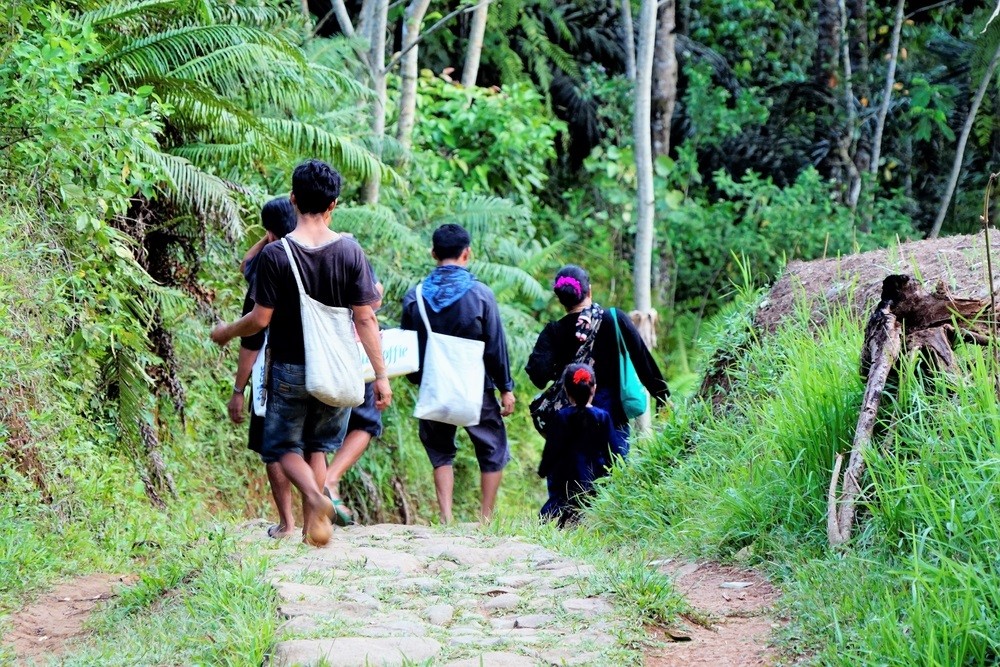Popular Reads
Top Results
Can't find what you're looking for?
View all search resultsPopular Reads
Top Results
Can't find what you're looking for?
View all search resultsTribal groups combine rituals, protocols to banish virus
In May, the Baduy tribe observed the traditional kawalu isolation ritual for three months.
Change text size
Gift Premium Articles
to Anyone
A
s countries around the world continue the long struggle to contain the spread of COVID-19, the Baduy tribe, which lives in a remote area of Lebak regency, Banten, has reportedly not been affected by the virus.
“We require everyone to implement the 3M health protocols,” said Kanekes village head Jaro Saija on Wednesday, as quoted by antaranews.com, referring to the government’s campaign – alliterative in Indonesian – encouraging mask-wearing, hand-washing and social distancing.
In May, the tribe observed the traditional kawalu ritual for three months.
During the ritual, the settlement of approximately 11,600 people allowed no one to enter, as villagers continued with their lives farming, beekeeping, cultivating palm sugar and weaving traditional textiles by hand.
The residents were also prohibited from leaving the village.
Tribe members who were living or staying outside the settlement were urged to return, but not before undergoing health checks at community health centers (Puskesmas).
"We guarantee that this settlement is free from the deadly coronavirus because no one has been found to suffer from it and we are also implementing health checks on visitors before they enter," Jaro said on May 17.
Under normal circumstances, tourists often visit the Baduy people to observe traditional activities and enjoy the regency’s natural beauty.
Now, both Baduy tribe members and tourists in the area are asked to wear masks and keep a safe social distance, and visitors are required to wash their hands at facilities provided by the local administration.
Jaro’s wife Pulung said she never took off her mask in public, as the area frequently welcomed tourists.
“My husband and I always wear masks, keep a safe social distance and wash our hands using soap to avoid contracting COVID-19,” she said.
Indigenous communities throughout Indonesia have performed rituals or employed traditional techniques in an effort to keep the disease at bay.
In East Nusa Tenggara, leaders of the indigenous Kengge, Seso and Rongga tribes gathered at Mbolata Beach in East Manggarai on March 30 to perform traditional rituals known as podo to ward off the virus from their communities.
During the rituals, the tribe members provided a black rooster and an egg as an offering. They also performed Pele Le Tadu Lau (closing all access), seeking help from their ancestors.
"We have asked our ancestors to close the doors to prevent the virus from coming in," Seso tribe leader Damianus Tarung said.
In Jambi, the Suku Anak Dalam nomadic people, who live in the province's Bukit Duabelas National Park (TNBD), employed a method called besasandingon, a sort of physical-distancing system that they have long used to combat contagious diseases.
Tumenggung Tarib, one of the leaders of the tribe, who are also known as the Orang Rimba, said the system was traditionally used to curb the spread of diseases such as influenza within the community. (jes)










